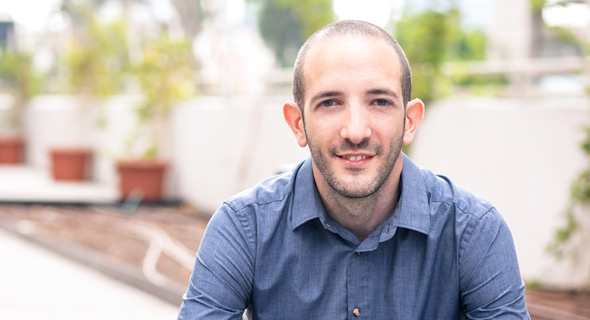Could volunteering be the key in competition for tech talent?
“Could it be that generation Y, who constitute most of today’s workforce, expect something totally different from a company activity than a concert by a successful singer?” asks Elad Blumenthal, CEO of OneDay Social Volunteering
11:3330.01.22
The lack of high-quality labor is pushing recruitment competition between high-tech companies to new peaks. Companies strive to brand themselves as luxurious employers, with rich organizational cultures and lavish welfare programs.
But could it be that generation Y, who constitute most of today’s workforce, expect something totally different from a company activity than a concert by the most successful singer? Could it be that incorporation of volunteer activities in the regular team building days of the company turns out to be a major asset for employer branding, HR and welfare teams, which comes together with added-values for workers, employers, and Israeli society at large?

Elad Blumenthal, Founder and CEO of OneDay. Photo: Adi Lamצילום: עדי לם
A staggering 99% of employers believe that they are responsible for their employees’ welfare, as well as their mental and physical health. The correlation between employee wellbeing and volunteer work has been clearly and distinctly proven: employees who volunteer are more content and optimistic about their futures than those who do not. Also, volunteering directly influences workers’ health, especially in high-tech – there is a marked decrease in stress levels, with 94% of workers reporting improved moods, diminished loneliness and richer social interactions and relationships.
But it is not only the company’s employees that stand to benefit from corporate volunteer activities. Research conducted by Benevity shows that 76% of generation Y evaluate a company’s volunteering options before applying for a job. Accordingly, companies that allocate time for volunteering spend less time screening CVs, since they receive 31% more highly compatible applications for each position they advertise, compared to other companies.
Still not convinced of the benefits of volunteering to companies? Then remember that the normal cost of replacing an employee is between $15,000-$25,000, and that 88% of generation Y prefer to work in companies that offer group volunteer activities. This makes it easy to see that investing in community focused volunteer days can save companies hundreds of thousands of shekels in employee training.
SAP has formerly found that changing the scope of employee volunteer activities by only one percent led to a corresponding rise/drop of $40 million in company revenue. So, it seems that an increase in employee social engagement improves productivity and leads to substantial gains in company profitability.
Despite these significant benefits and contrary to the popular belief, Israel’s volunteering rates are approximately 26% lower than the OECD average. The reasons behind that relate to the relatively long work days in Israel, a lack of free time, the fact that most non-profits require long-term commitments and do not offer appealing added-values to the volunteers. Most of generation Y have reported that they would prefer volunteer activities that seem enjoyable and engaging.
The Covid pandemic has emphasized many needs in Israeli society that require an extensive volunteer response. But, in contrast with other states of emergency in the past which have increased social solidarity, we have not seen a rise in volunteering rates in the past two years. Quite the contrary, one research on the subject suggests that there was a steep 40% decrease between 2019 and 2020. This past year saw the same pattern, with 57% of social organizations meeting difficulty in recruiting volunteers.
Why? Have we become less empathetic? The reason is that a major part of the volunteer force is made up of senior citizens who preferred not to take risks during the pandemic. So, in the past two years, the focus shifted to the younger generation and the private sector, with the expectation that they take a more active role in social activity.
However, in order to allow companies to volunteer with their employees and become a major force in the field, we must change the common conception and model of volunteer work in Israel – we must shift from the “traditional” model of regular, long-term volunteering to a “new” model of accessible and enjoyable volunteering, that better fits the younger generation. Changing the model so it will no longer be a one-sided equation of “giver” and “receiver,” but a two-sided one, in which all sides benefit. Volunteering should leave employees wanting more, and looking-forward to the next volunteering activity.
Related articles
Personally, as an experienced social entrepreneur, I did not need a pandemic that isolates seniors to push me into understanding the benefits of socially engaged companies. It is necessary and beneficial for all parties that we develop a new volunteer framework that fits the modern private sector. Raising volunteering rates in companies is not only a potentially major factor in doing much good within the community, a way to strengthen the national resilience and to encourage the employee’s civic engagement also in their free time, but is also a great tool for the companies themselves – one they simply must not miss out on.
Indeed, it’s the non-profit sector decision whether to try and force companies and their employees to volunteer in the “traditional” way because it is the “right” thing to do, or to be “smart” and change our frameworks and models, making them more accessible; allowing employees and companies to be an evolving factor in the social field, promoting empathetic partnership out of shared interest, and not out of a contractual agreement between volunteer workers and organizations.
Elad Blumenthal is the Founder and CEO of OneDay Social Volunteering



